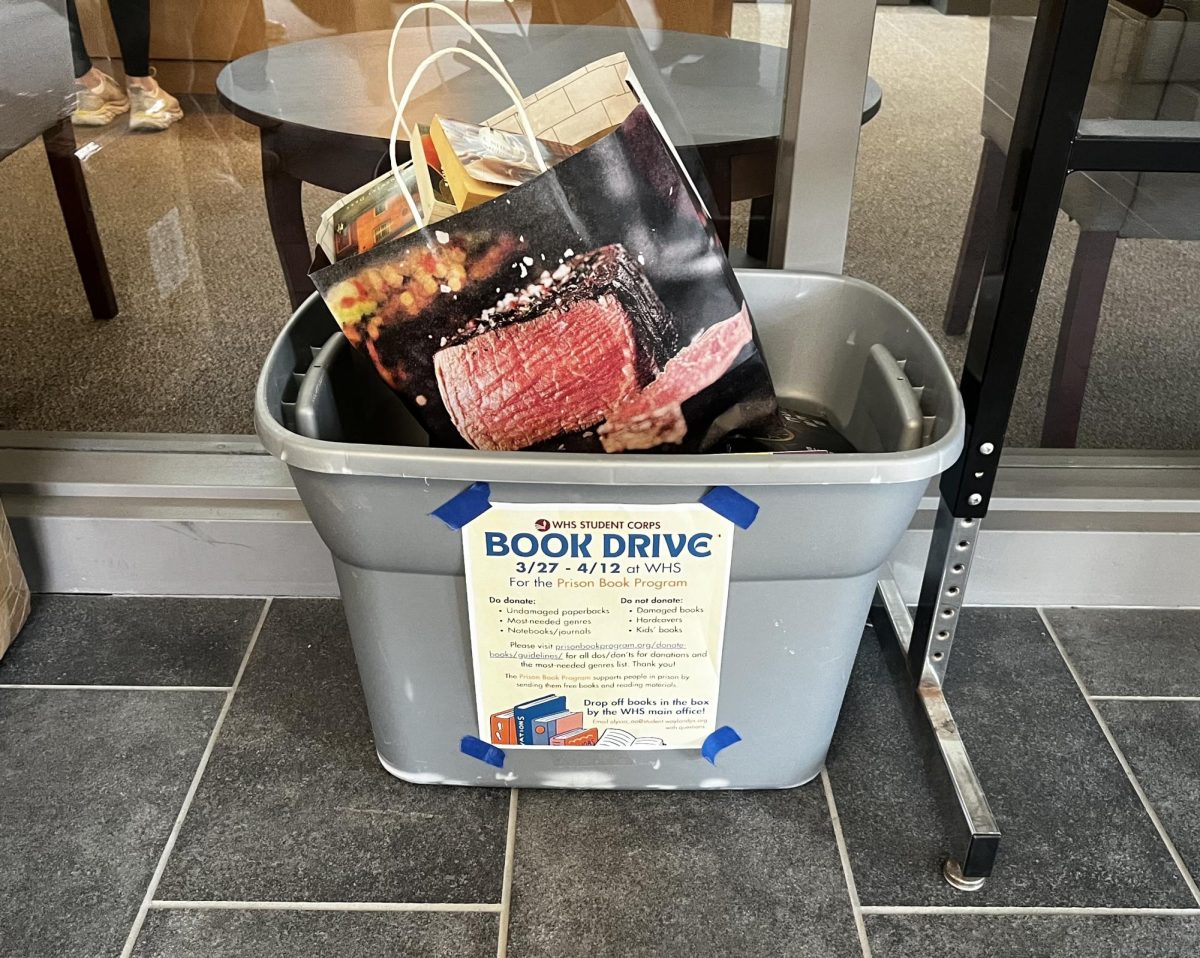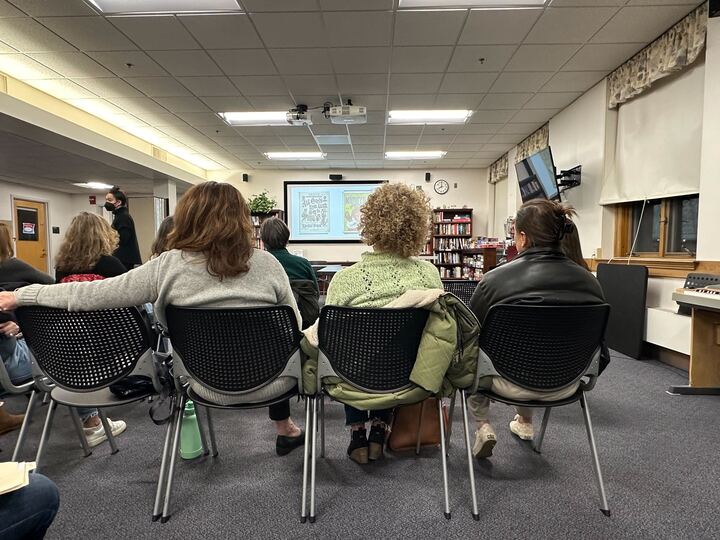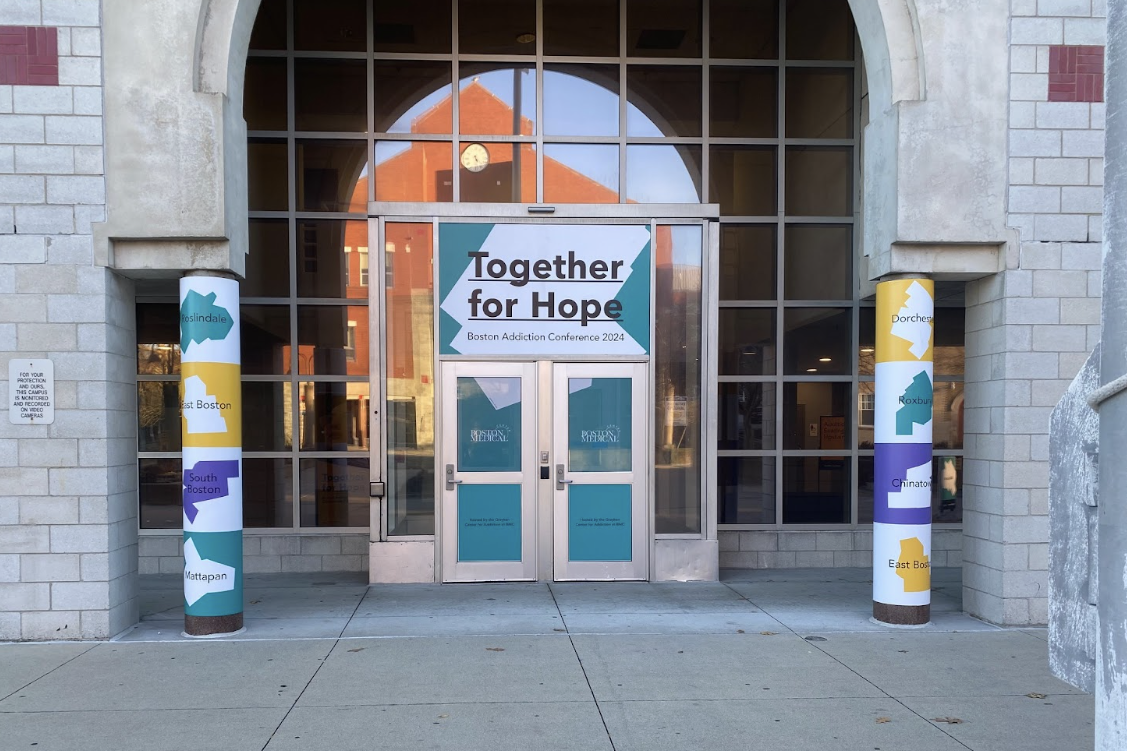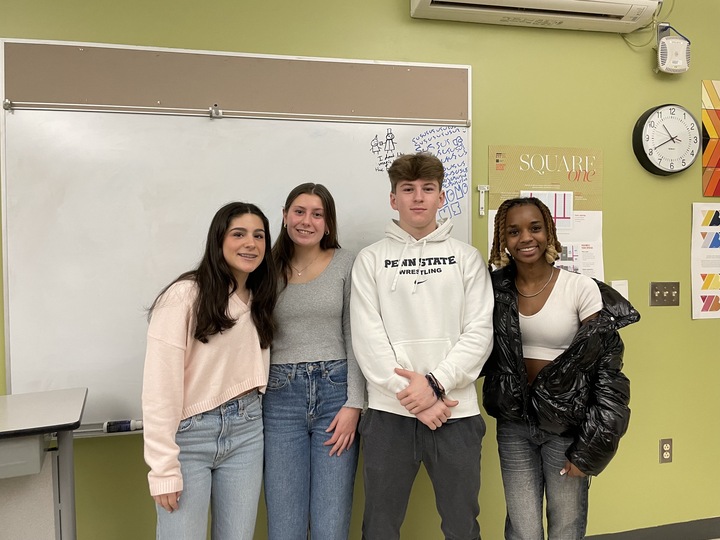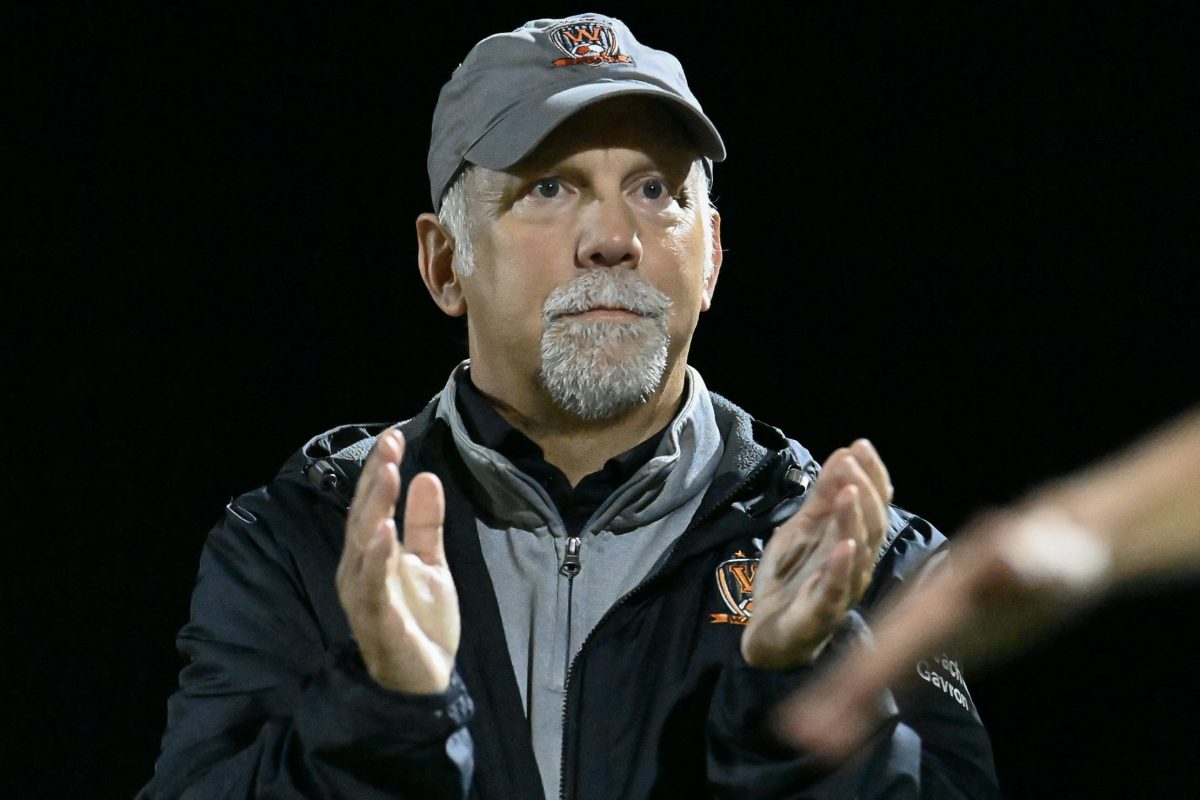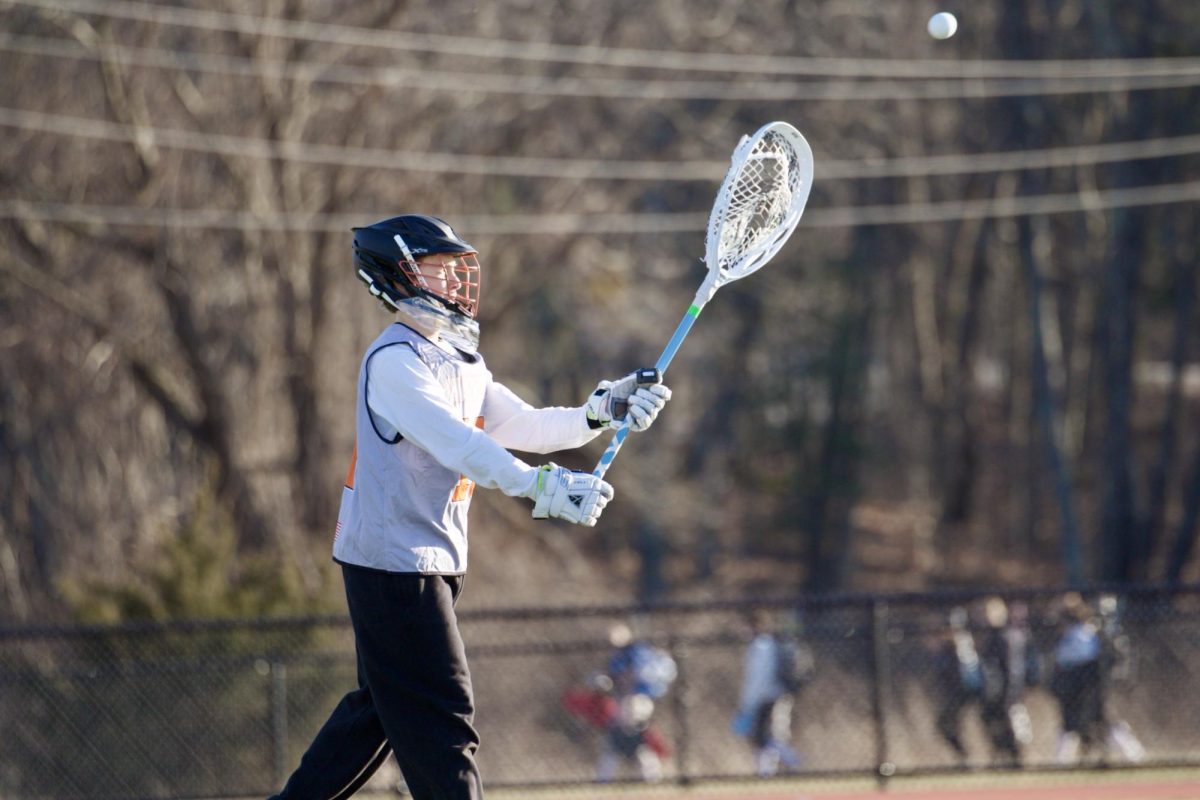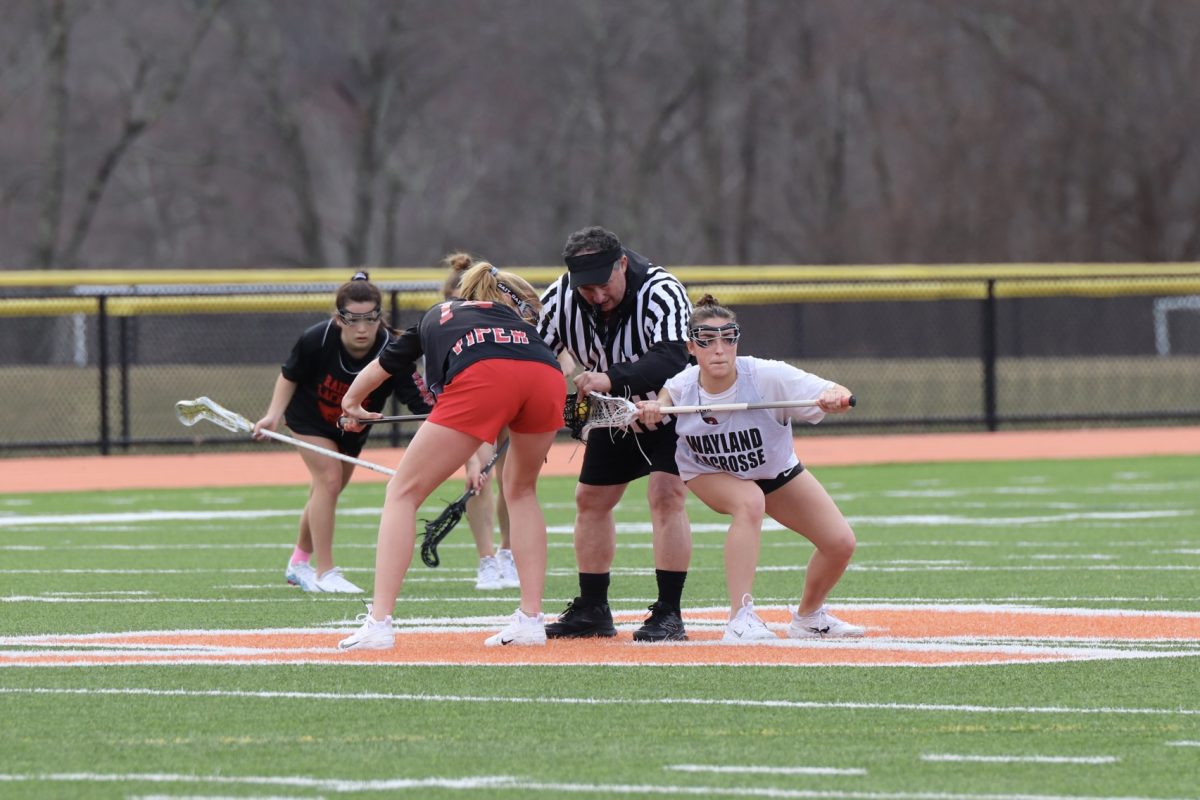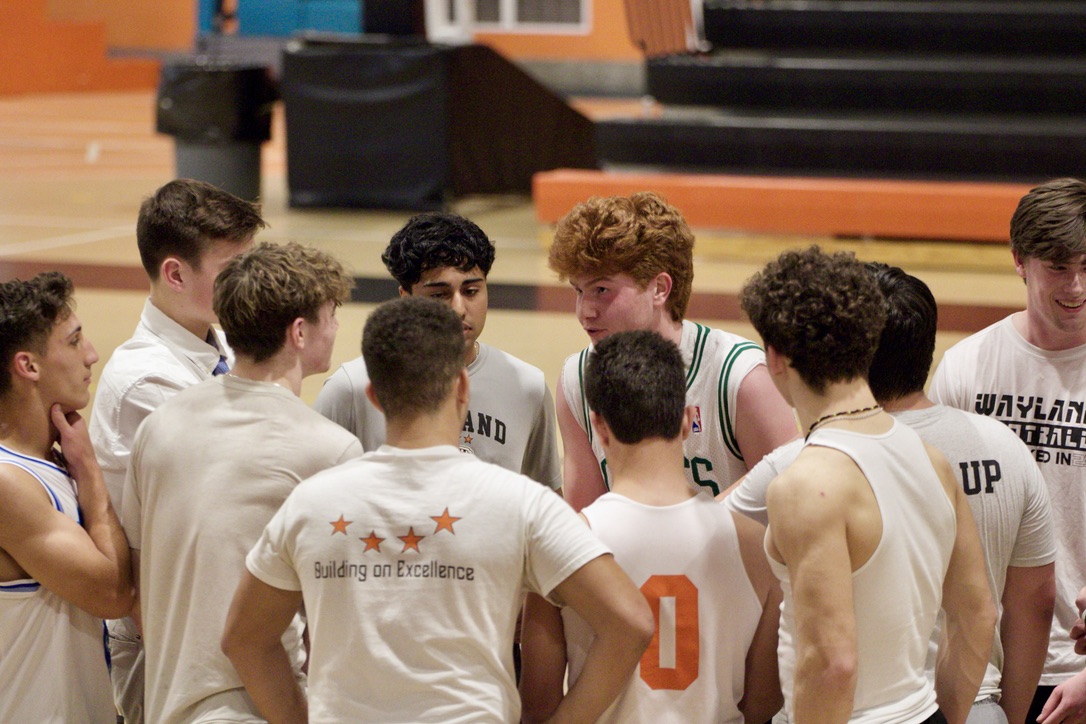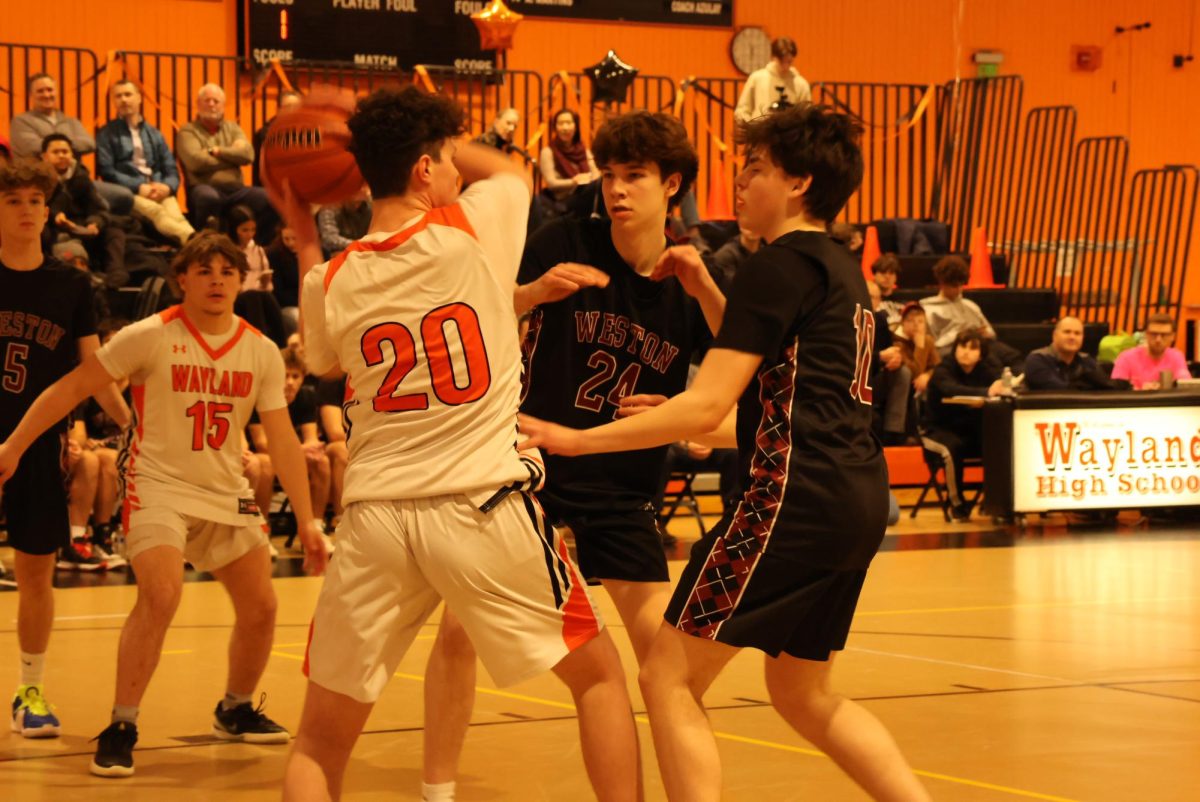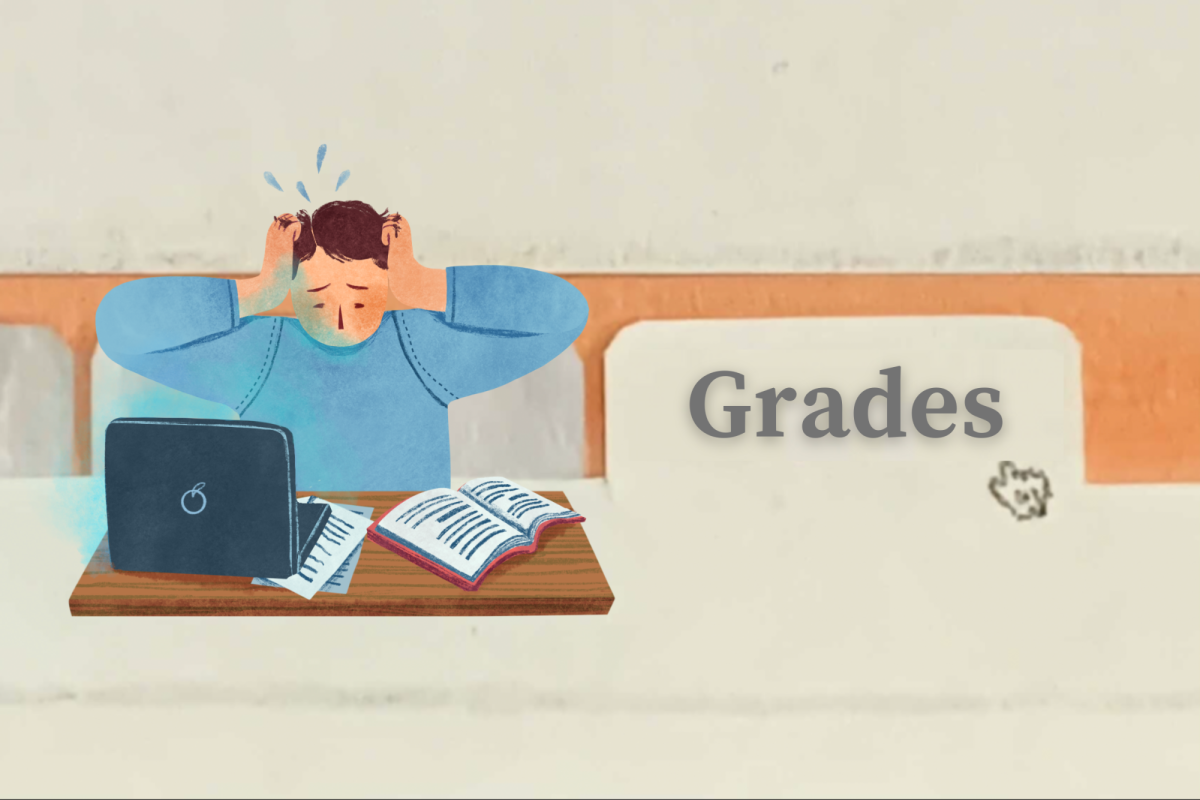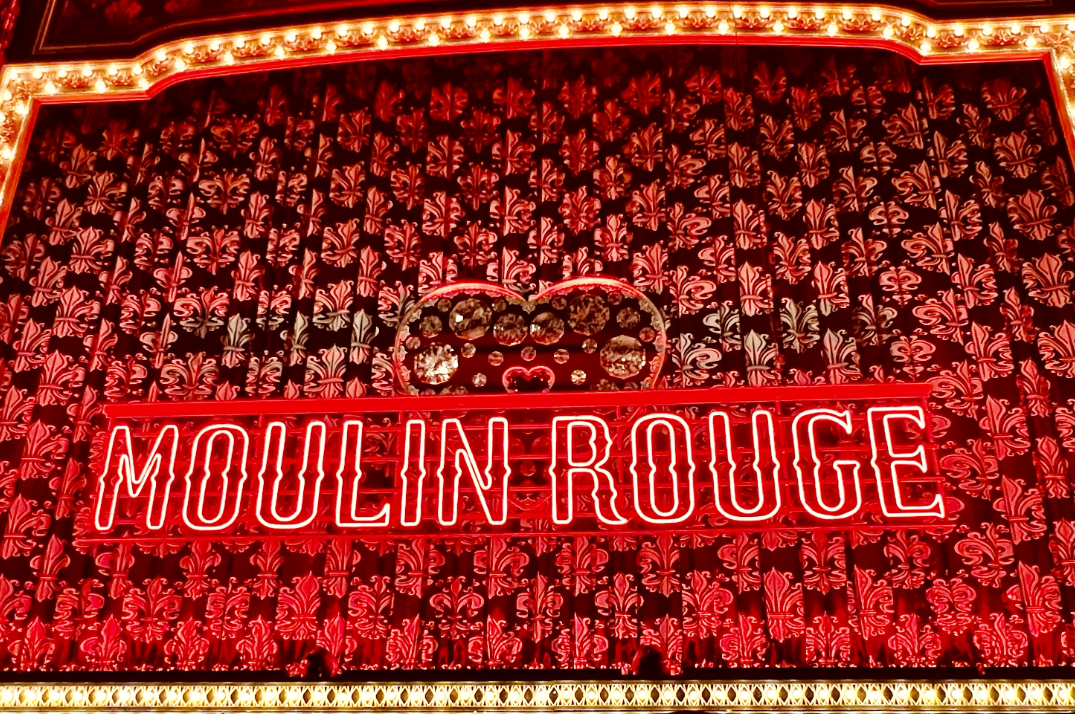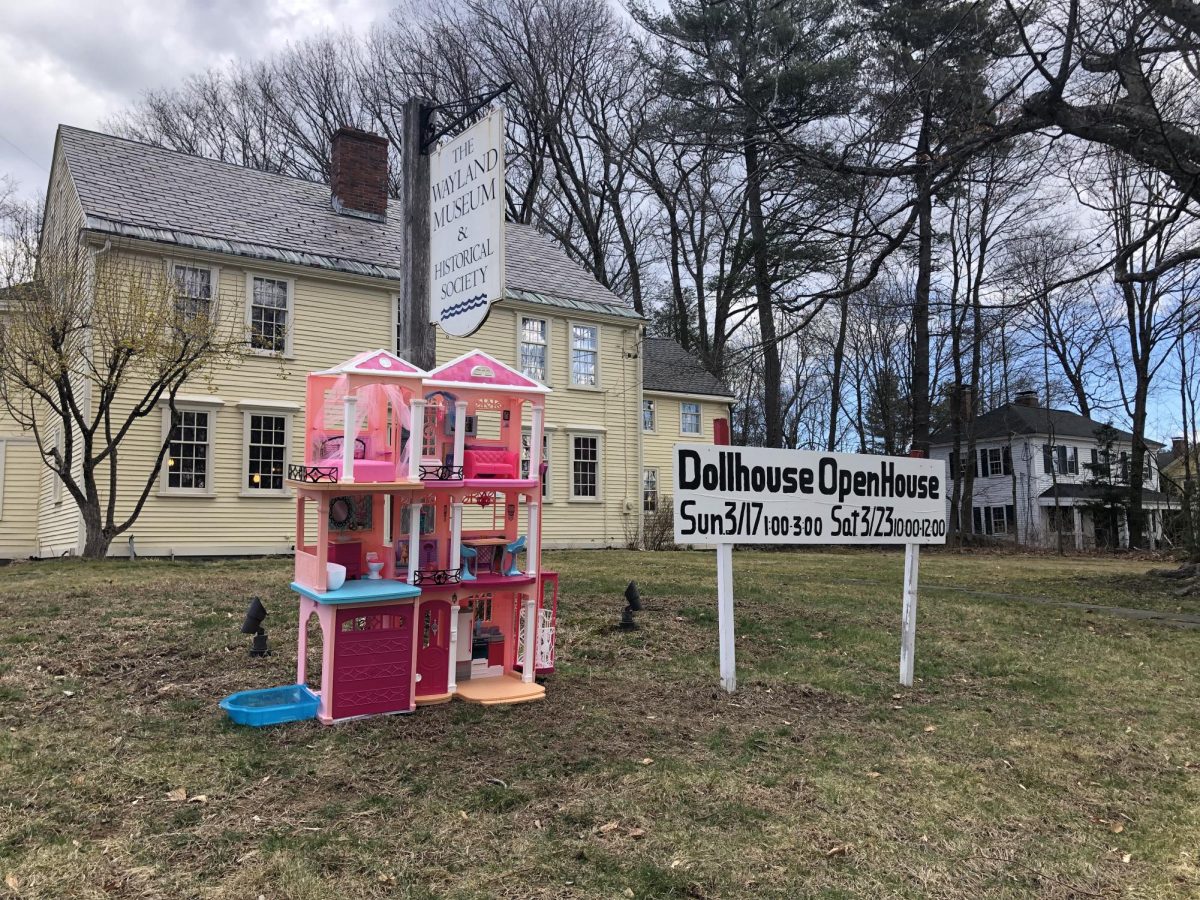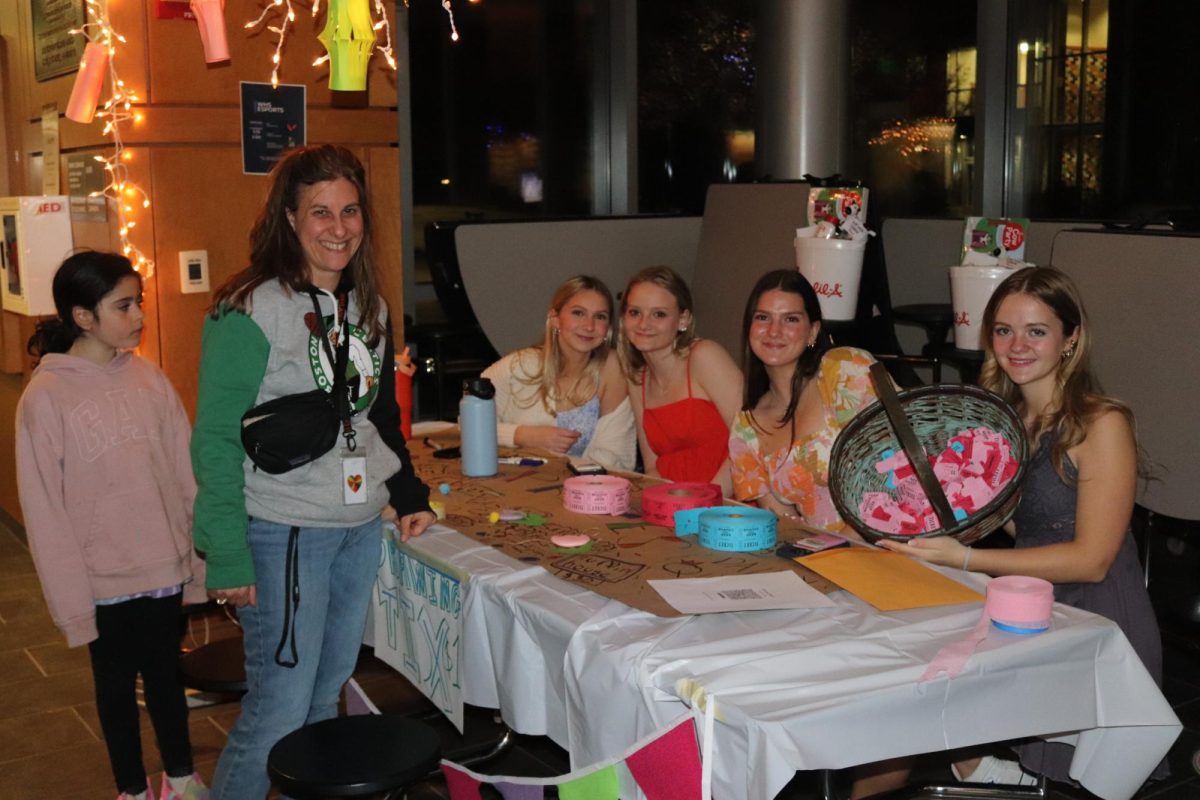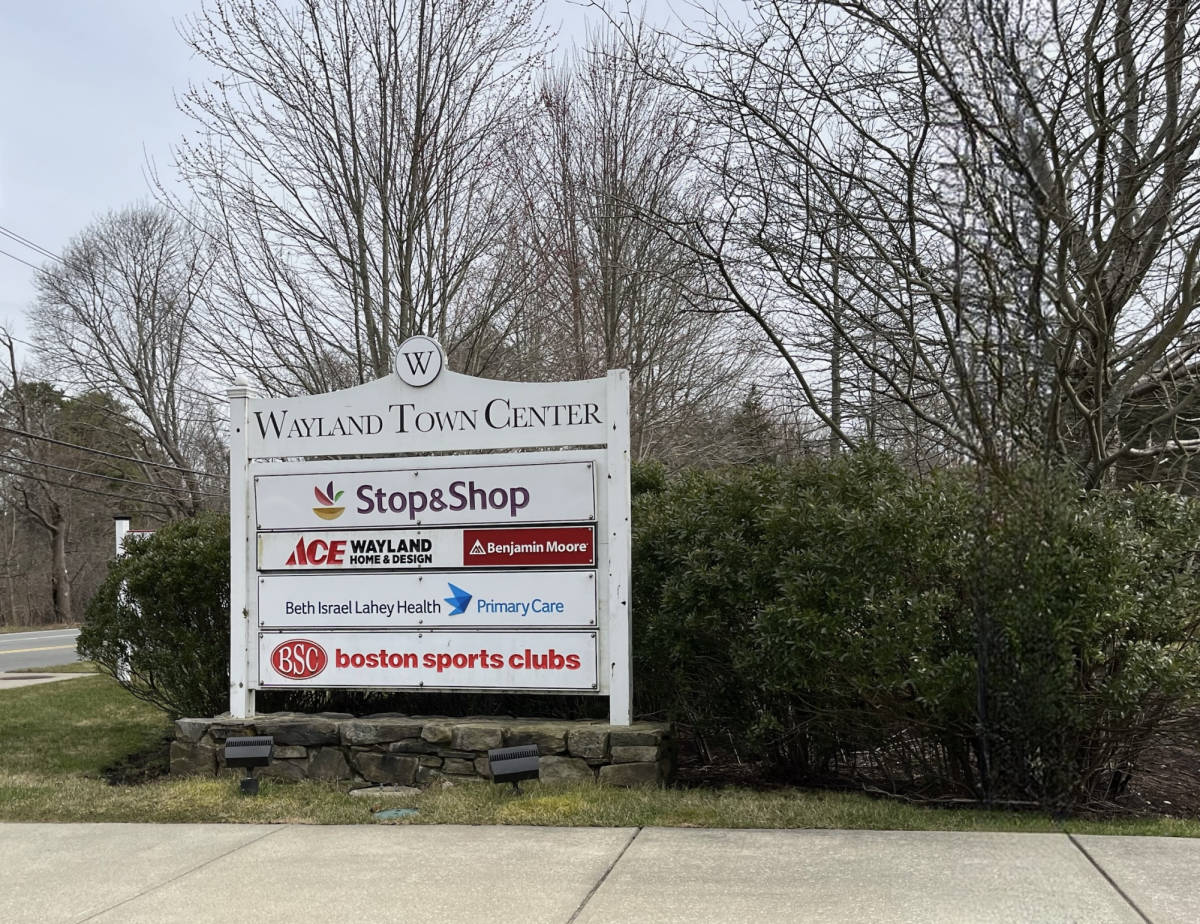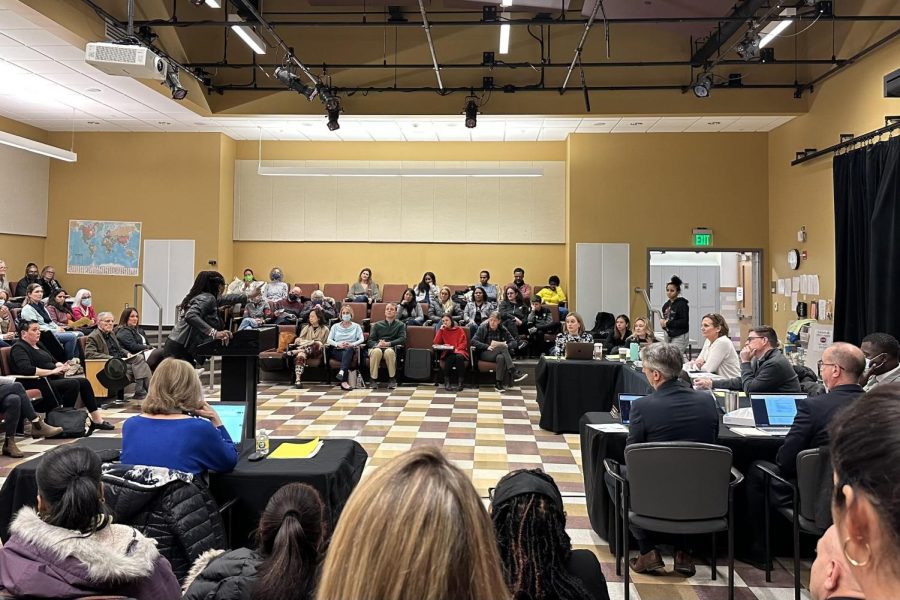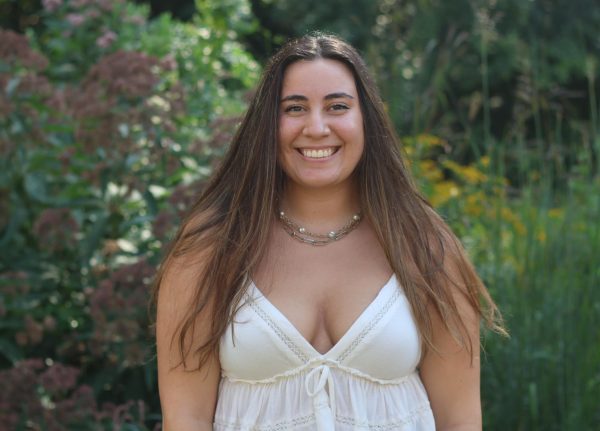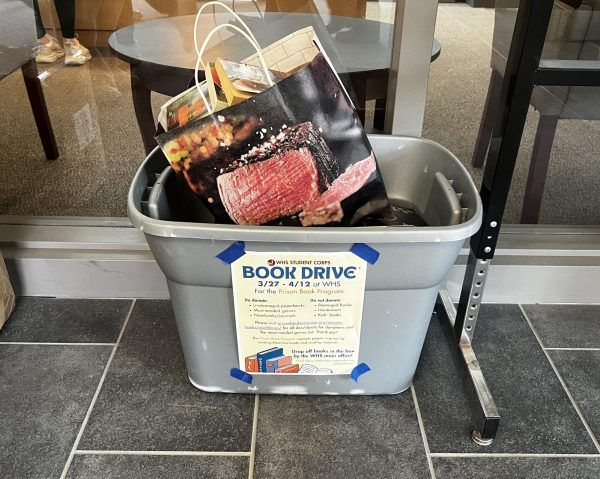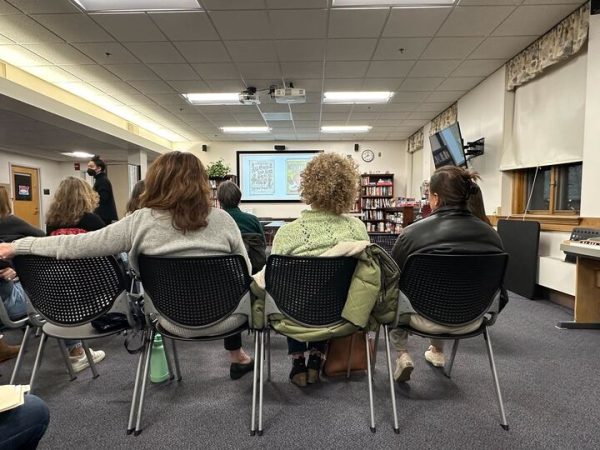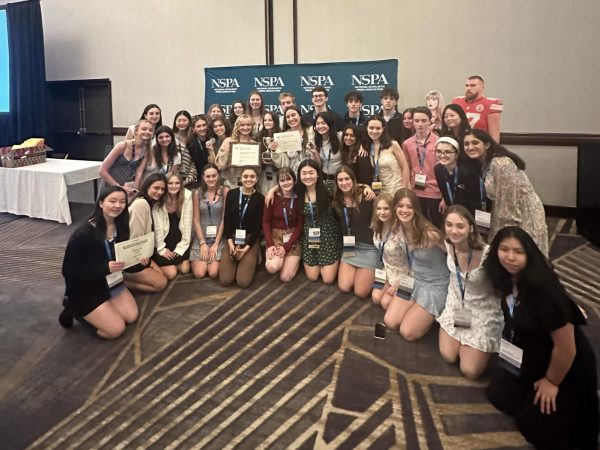Wayland School Committee meets to address racist graffiti
Credit: Katya Luzarraga
On Jan. 4, the Wayland School Committee held a meeting to discuss the racist graffiti attacking Wayland Superintendent Omar Easy found on Dec. 21, 2022. During the meeting, some Wayland community members also shared their perspectives and thoughts on the matter.
January 7, 2023
On Wednesday, Jan. 4, Wayland’s School Committee held a meeting to discuss the racist graffiti targeting Wayland Superintendent Omar Easy found at the Wayland Community Pool, on Dec. 21, 2022. During the meeting, there was time for public comments from individuals who wanted to share their thoughts and feelings about the racist incident.
The meeting began with an opening statement from School Committee Chair Chris Ryan. In his statement, Ryan denounced the graffiti and stated that this meeting wasn’t going to immediately erase racism within Wayland. Instead, the purpose of the meeting was to begin the process of addressing and trying to get rid of racism within the community.
“[The School Committee] stands committed to becoming a school district that prioritizes diversity, equity and belonging, and shows that in our actions,” Ryan said. “We are here to respectfully share our thoughts and ideas in a way that explains our perspectives and offers insights to help us move forward.”
After Ryan’s opening statement, the time for public comment began. While people’s statements varied, most of the comments included a need for Wayland to work on addressing racism within its community.
“When I hear my town leaders and neighbors say ‘we denounce racism’ or ‘this is not Wayland,’ referring to the racist graffiti, my response is ‘yes, this is Wayland,’” Wayland resident Dovie King said. “It may not be the Wayland that you personally experience, but it’s real and it hurts people.”
What happened on Dec. 21 should never happen to anyone despite their skin tone, religion or race. We don’t deserve to see something so painful in a community that we travel an hour to for an education, in a community that claims to be welcoming to everyone.
— Nadya Montrad
During the time for public comments, former METCO director Mabel Reid-Wallace, who, in 2020, filed a discrimination complaint against the Wayland Public School system, also gave a pubic comment. She began by sharing her disappointment that Wayland has not progressed much since she left the district, and that the attacks against Easy revert back to using what she referred to as, “the stereotypical Black man role.” She believes that racism has been embedded in Wayland for years, and in order to see change, Wayland must acknowledge its racist aspects.
“I come here tonight and I say to you as a school committee, look at what you do,” Reid-Wallace said. “Look at what you did that precipitated those two words written on the side of that building. You gave people the permission to step out and say ‘this is how I truly feel.’”
After the public comments concluded, the School Committee began their official discussion by inviting Wayland METCO Director La Toya Rivers and Wayland Director of Diversity, Equity and Belonging Caroline Han to guide the conversation and share their perspectives.
To begin, Rivers gave two METCO students, sophomores Nadya Montrad and Imani Hall, the opportunity to read a statement representing the METCO community. While Montrad and Hall read their statement, Rivers invited the rest of the METCO students present to stand as a show of solidarity.
“What happened on Dec. 21 should never happen to anyone despite their skin tone, religion or race,” Montrad said. “We don’t deserve to see something so painful, in a community we travel an hour to for an education, in a community that claims to be welcoming to everyone.”
Wayland METCO students advocated for the preservation of affinity spaces, a specific space for people with a shared affiliation such as race, gender or sexuality, in Wayland Public Schools. The METCO students also vocalized their disappointment in the lack of Black history taught in the WHS curriculum.
“Most METCO students find it hard to open up to the students in our community,” Montrad said. “Sadly, most teachers only touch on teaching their students the importance of [Black] history and culture. There was never an environment [in Wayland] where we felt or that our opinion had an impact in the community.”
We’re willing to help you [understand racism]. We’re a team, you can learn from us, we can learn from you. We can make [anti-racist work] happen, but we all need to be on the same page and you need to be willing to do this.
— Taisha Stevens
After the METCO students read their statement, Rivers invited the executive board members of the Wayland’s Boston Parent Council, Chanel Daly, Susan Young and Taisha Stevens, to read a statement on behalf of all METCO parents. Their statement called for the end of racial inequality within Wayland and announced the “Day of Impact” on Jan. 17, where METCO parents will not send their children to school in order to raise awareness about racial discrimination within Wayland’s community. The executive board members urged Wayland parents to participate by keeping their kids home and educating them on their own racial biases.
“We’re willing to help you [understand racism],” Wayland Boston Parent Council Treasurer Stevens said. “We’re a team, you can learn from us, we can learn from you. We can make [anti-racist work] happen, but we all need to be on the same page and you need to be willing to do this.”
When Rivers and Han completed their statements, the School Committee members took time to ask them questions about the next steps Wayland could take to ensure that anti-racist work continues.
“As a person of color working in a predominantly white district, we constantly have to be prepared for [racism],” Rivers said. “With love and respect, I say it is not enough to say ‘I’m white and I don’t know.’ For people of color, race is always there.”
During the questions, the unofficial “four main points,” as coined by School Committee Vice Chair Ellen Grieco, were dismissing the investigation into the Nov. 10, 2022, School Committee meeting, ensuring that all staff are professionally trained to deal with race-based issues, requiring a more socially-diverse curriculum and keeping affinity groups for students in Wayland.
However, School Committee member Erin Gibbons argued that the intent of the Nov. 10, 2022, School Committee meeting was to help protect Easy during the investigation into his conduct during an Oct. 13, 2022, administrative council meeting, not to harm him.
“I think everyone needs to reframe the investigation and how it’s being labeled, because it’s not an investigation into Easy and it’s been tagged that way by the community,” Gibbons said. “From my standpoint, and from the rest of the School Committee, it is an investigation specifically into a meeting, and to figure out what went on. The interest in the investigation is also to protect [Easy].”
No one needs to be blamed [for the racism] but we are responsible. I won’t waver from my moral responsibility for people of color. No one should feel unsafe in any level of Wayland Public Schools.
— Omar Easy
Rivers responded by addressing the racial implications of hiring a Black superintendent and how it is essential that Wayland supports Easy. Rivers stated that the School Committee was responsible for putting the investigation into place, and that the Committee should have taken steps to protect Easy themselves instead of bringing an outsider into the investigation.
“For a superintendent of color to be challenged for something that seems so trivial in a day-to-day interaction, for a superintendent to be called out by a School Committee, to the level that the School Committee had to look into getting an outside investigator [and] to say that’s to protect him, rises to another level,” Rivers said.
The meeting concluded with a statement from Easy. He spoke on the impact that the racist attack had on himself, his family and the Wayland community. He thanked the Wayland community for their support and visibly teared up as he discussed the impact of the event on himself, METCO students and their families.
“No one needs to be blamed [for the racism], but we are responsible,” Easy said. “I won’t waver from my moral responsibility for people of color. No one should feel unsafe in any level of Wayland Public Schools. People have been feeling unsafe, and I speak against that, and I stand against it.”



